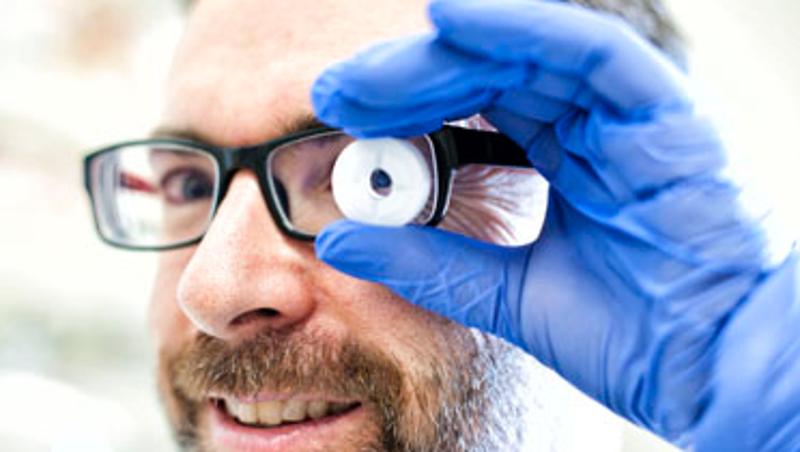
Five QUT researchers have received grants totalling nearly $3.5 million to enable them to work on projects tackling problem drinking, cancer, and eye and teeth health.
The National Health and Medical Research Council (HHMRC) grants announced on November 9 included the following QUT researchers and projects.
Professor David Kavanagh ($895,032 project grant): A new, low-cost e-health treatment for Alcohol Use Disorder using mental imagery (2016-19)
- This project offers the first large-scale test of phone-based Functional Imagery Training (FIT), a new, low-cost way to help people change behaviours using mental imagery, regardless of where they live. The trial addresses Alcohol Use Disorder—a common problem with substantial health and social impacts, comparing FIT with verbal motivational treatments, and testing effects on alcohol use and quality of life over 12 months. Cost-effectiveness and predictions of outcome are also examined.
Associate Professor Damien Harkin ($886,032 project grant): Cultivated corneal endothelial cell implants for restoring vision (2016-18)
- Thousands of Australians each year receive a corneal tissue transplant from the eyes of a deceased organ donor. In the majority of cases these transplants are performed to restore structure and function to the most posterior layer of the cornea - the corneal endothelium. The reliance upon donor tissue, however, presents significant logistical and safety issues. Our goal is therefore to develop improved strategies for treating diseases of the corneal endothelium using cultivated tissue implants.
Professor Colleen Nelson ($780,338 project grant): Targeting a master regulator of tumour cell plasticity as a new adjuvant therapy for prostate cancer (2016-2018)
- Prostate cancer (PCa) claims the lives of over 3,000 Australian men each year. This highlights the urgent need to identify new molecular targets that can be developed as additional therapies for men with PCa. Our team has identified the protein, Zeb1, to be highly expressed in aggressive and treatment resistant forms of PCa. This study aims to characterise the role of Zeb1 in the lethal progression of PCa and to develop a new therapeutic agent to inhibit the production of ZEB1 by cancer cells.
Dr Michael Doran ($561,012 project grant): The Microniche: A novel in-vitro and in-vivo prostate cancer model system (2016-18)
- Maintaining primary prostate cancer cells (PCa) in vitro remains an enormous challenge for the field, and this obstructs efforts to systematically characterize cell behaviour and quantify drug response. Our group recently developed a 3D organoid culture system that does maintain PCa in vitro, and here we will integrate this technology with our 3D bone maorrow niche model system to better characterize PCa bone metastases and identify new clinical treatment regimes.
Dr Yinghong Zhou ($314,644 Early Career Fellowship): Dissecting the cell signalling cues for periodontal regeneration (2016-19)
- The project will first demonstrate that periodontal ligament cells have the ability to differentiate into osteoblasts (bone-forming cells) and cementoblasts (tooth root cementum-forming cells), which can be enhanced by the activation of signalling cues (Wnt/ß catenin signalling). This will lead to the development of a novel material with cell signal enhancing properties, and present a new treatment option to repair and regenerate the three-dimensional structures of the tooth-supporting tissues.
Professor Judith Clements will also receive $150,660 for the sixth year of her ongoing NHMRC Research Fellowship for prostate and ovarian cancer research.
Federal Health Minister Sussan Ley said the grants nationally would support 836 projects and enable Australia's world-class and internationally-recognised researchers to develop the new treatments of the 21st century and beyond.
"Our research workforce is one of the strongest in the world and I have no doubt that through their expertise, talent and creativity, these researchers will make huge advances in improving human health," Ms Ley said.
Media contact: Mechelle McMahon, QUT media officer, media@qut.edu.au




